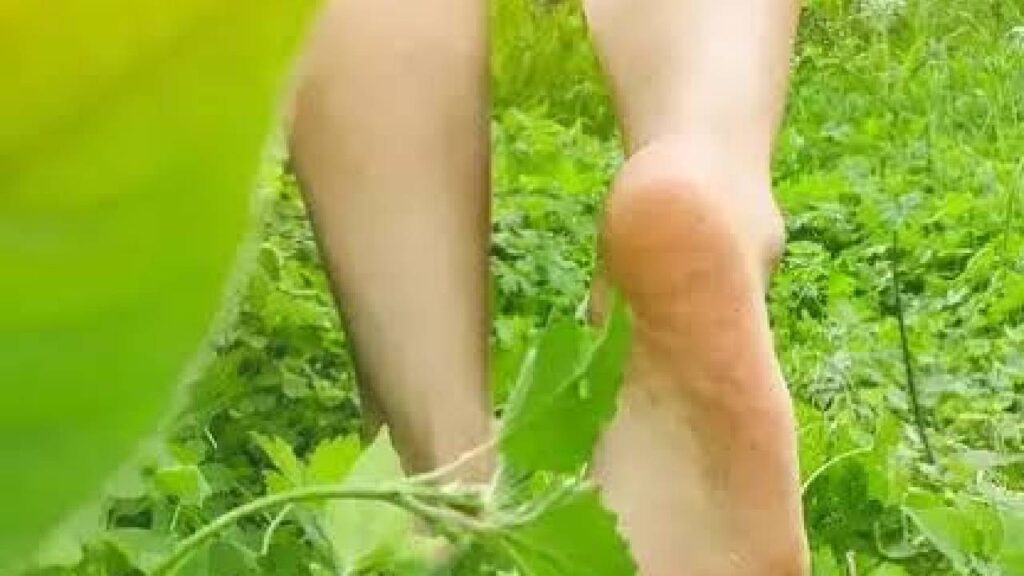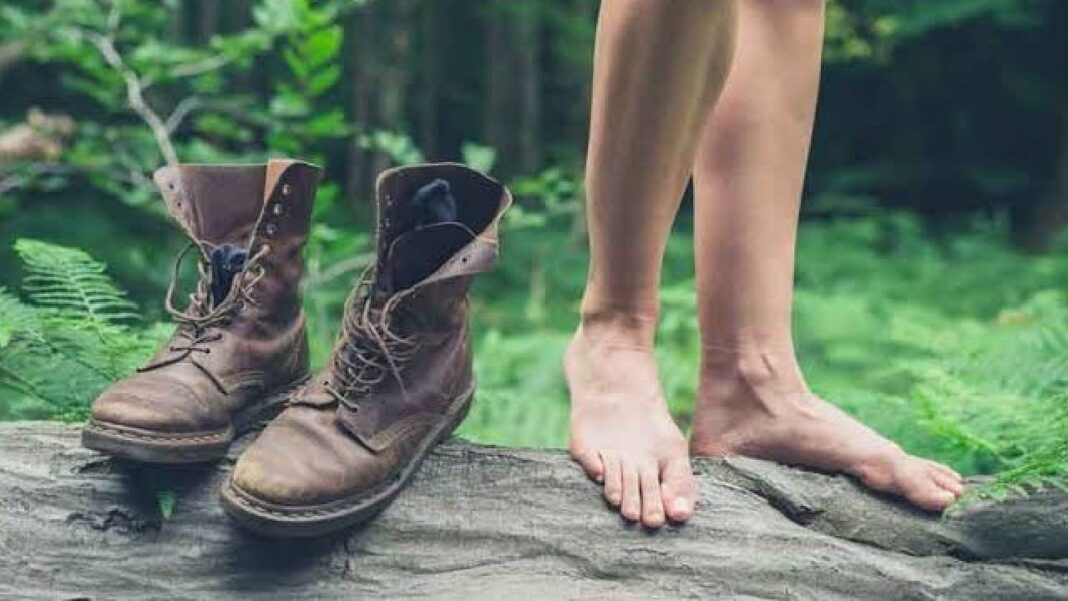In an age where we’re constantly surrounded by screens, stress, and synthetic surfaces, a simple act like walking barefoot on grass or soil could be a powerful step toward better health. From improving sleep and reducing anxiety to supporting cardiovascular and hormonal balance, grounding—or earthing—is steadily gaining recognition as a natural, holistic practice with science-backed benefits. In an exclusive chat with The Pioneer, health experts shed light on the growing evidence behind grounding. They explain how direct contact with the Earth can help neutralise free radicals, reduce inflammation, and promote overall well-being—making this age-old practice more relevant than ever in today’s urban lifestyle
Sulogna Mehta
Have you ever tried ditching those stilettos, sneakers, shoes and sandals and just walking barefoot on the green grass, sand or soil? For the urbanites, used to living in concrete jungles, not only does the touch of nature under the feet feel nice, it is also said to have a number of positive effects on physical and mental health.
From improving sleep quality to reducing stress and inflammation, providing hormonal balance to cardiovascular health, there are several benefits of grounding or walking barefoot for 20 to 30 minutes regularly on the soil, grass and sand, as per various studies. Medical experts throw more light on this healthy habit.

Earthing, also known as grounding, involves direct physical contact with natural surfaces such as the soil, grass and sea sand, typically by walking barefoot. While the concept may appear simple, increasing scientific interest has highlighted its potential to support human health in meaningful ways.
Vaibhav Daga, Head, Sports Science and Rehabilitation and Sports Medicine Consultant at Kokilaben Dhirubhai Ambani Hospital, Mumbai, says, “In today’s modern lifestyle increasingly dominated by synthetic surfaces, fashionable footwear and digital stressors, grounding offers a simple, accessible and evidence-supported method to reconnect with nature and support holistic health.”
“Grounding is believed to restore the body’s natural electrical state and reduce chronic inflammation, which is a common underlying factor in many modern diseases. According to a 2012 study by scientists Gaetan Chevalier, S.T. Sinatra and J.L. Oschman, ‘Earthing: Health implications of reconnecting the human body to the Earth’s surface electrons,’ published in the Journal of Environmental and Public Health, the Earth’s surface carries a negative charge and by physically connecting with it, the body may absorb free electrons. These electrons are thought to act as natural antioxidants, neutralising free radicals and reducing chronic inflammation,” explains the physiotherapist. Other ongoing studies are also exploring grounding’s impact on immune function and chronic pain.
As per Chevalier, grounding may also enhance cardiovascular health by reducing blood viscosity, enabling better blood flow, which in turn can lower the risk of hypertension and cardiovascular ailments. Furthermore, it has been associated with reduction of stress, improved mood and decreased anxiety, likely due to its influence on the autonomic nervous system and stress modulation.
Dr Vaishali Lokhande, Senior Consultant, Internal Medicine Specialist at Apollo Hospitals Group, adds, “When the soles of our feet touch the Earth, free electrons from the ground are absorbed into the body. These act as natural antioxidants, neutralising free radicals and reducing oxidative stress. This has a calming effect on the nervous system, promoting the release of endorphins and lowering levels of cortisol, the primary stress hormone. The result is reduced anxiety, better sleep, and noticeable pain relief.”
“Studies have shown that grounding can positively influence sleep quality, lower stress levels and pain perception. It is important as excessive stress and sleep deprivation are becoming major health challenges in the digital era. In a study by M. Ghaly and D. Teplitz, published in the Journal of Alternative and Complementary Medicine, those who slept grounded reported improved sleep. Earthing normalised the rhythms of stress hormones (cortisol) and synchronised it with the natural 24-hour circadian rhythm, which resulted in better sleep,” says Sports Medicine expert Vaibhav.
“From a rehabilitation perspective, barefoot contact with natural surfaces can also stimulate balance, coordination and proprioception (the body’s subconscious ability to sense its position, movement and location without depending visually), particularly beneficial for older adults or those recovering from injury,” he adds.
Speaking about some of the indirect benefits of walking barefoot, Dr Vaishali avers, “While scientific data is still evolving, traditional wisdom and some early studies suggest that walking in contact with nature helps lower stress levels and improve hormone regulation, which in turn can support reproductive health. Further, walking on green grass stimulates acupressure points on the soles, which in reflexology are linked to eyes and thus it indirectly benefits eye health. Though not conclusively proven, many patients report feeling refreshed and reduced eye strain.”
“For optimal benefits, walking barefoot 20 to 30 minutes a day, preferably in the early morning, is adequate for getting positive results. Start slowly for a few minutes and then gradually increase the time. Moist green grass, sandy beaches, or soft soil are ideal as they conduct the Earth’s energy well and are gentle on the feet,” avers Dr Vaishali.
Doctors also advise taking certain precautions while walking barefoot. For instance, in case of any pre-existing foot conditions, one should consult a doctor before grounding. In case of any presence of cuts or bruises on the feet or on the soles, one should not walk barefoot to prevent contamination and infections. “Avoid uneven surfaces, areas with sharp stones, glass or thorny plants. Use a torch if one is walking at daybreak or in late evening. Apply a natural insect-repellent if required,” adds Dr Vaishali.
As urban lifestyles continue to distance us from nature, grounding offers a simple yet profound way to restore balance—both physically and mentally. Backed by emerging scientific research and traditional wisdom, walking barefoot on natural surfaces is more than just a sensory pleasure; it’s a low-cost, accessible wellness practice that supports overall health. With a bit of mindfulness and care, integrating this habit into daily life could be a small step with big benefits.




